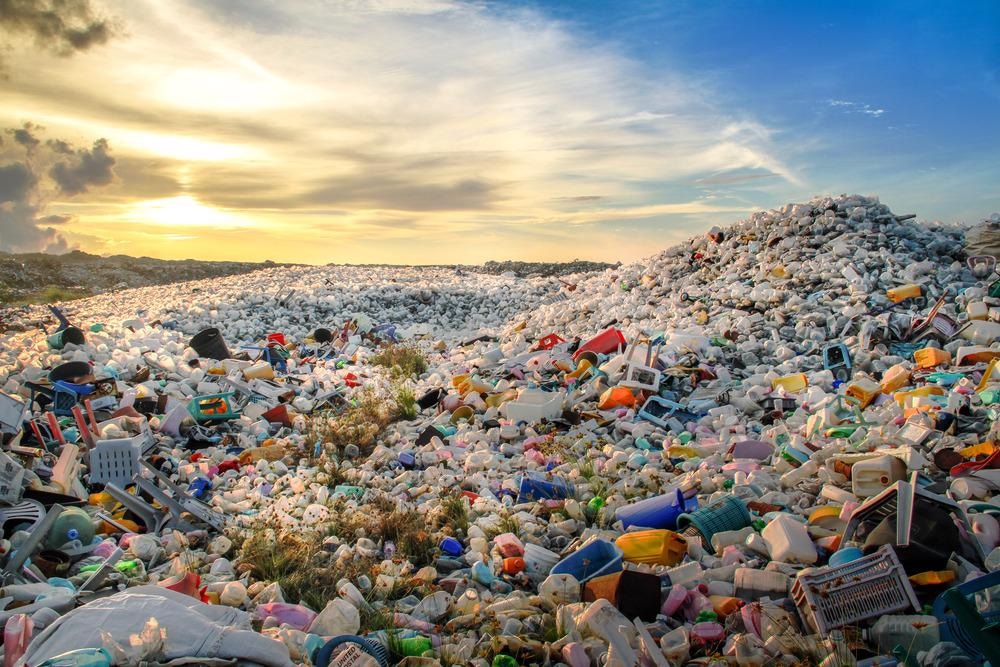Writing in the Journal of Environmental Management, a team of Chinese researchers has investigated the nation’s roadmap to plastic waste management and its associated economic costs. The aim of the study is to provide information on how China can achieve a “win-win” situation for both the environment and the nation’s economy.

Study: China’s roadmap to plastic waste management and associated economic costs. Image Credit: MOHAMED ABDULRAHEEM/Shutterstock.com
Plastic Waste
The exponential growth in plastic use since the 1950s has led to significant environmental damage. In 2020, the amount of plastics produced globally reached 367 million tons/year, exacerbating global warming and leading to considerable waste. Studies have indicated that the total global plastic waste generated up until 2015 was around 6.3 billion tons, with only 9% recycled. The lack of global waste management capacity has exacerbated the issue.
Plastic waste is a critical issue for marine ecosystems, being ingested by marine organisms, entangling animals, entering the food chain, and affecting the function of drainage systems and infrastructure. Additionally, harmful microorganisms can feed on plastic waste and proliferate.
Comprehensive regulations on international waste transfer and disposal have been included in the Basel Convention, with plastic waste included in 2019. Several developed nations have established conventions, regulations, policies, and legal systems to reduce plastic pollution.
A Chinese Perspective on Reducing Plastic Waste
Amongst the nations to introduce policies, legal systems, and regulations on plastic waste and pollution, there is an urgent need for China to tackle its growing plastic waste problem. Rapid industrial development since the mid-20th century has led to the increased demand for plastic products and the rapid accumulation of waste. According to estimates from the National Bureau of Statistics of China in 2020, between 2004 and 2019, approximately 335.46 million tons of plastic waste was generated in the country.
China has made policy progress over the past decade in tackling this critical issue. In 2018, the Chinese government banned all imports of non-industrial plastic waste, and in 2020 the government called for a gradual phasing out of non-degradable plastics in the nation and improvements in mechanisms of production, consumption, recycling, and disposal. For the nation’s policies to be implemented effectively, methods for assessing future plastic waste generation are critical.
Current Research
The majority of current research on the potential for China to reduce its plastic waste generation is focused on the impact of the nation banning imports on international plastic waste trade patterns. China’s plastic waste production, especially with respect to regional variations and economic costs, is rarely factored into existing studies. Some research has focused on projecting future plastic waste emissions.
Previous studies have also combined national waste management data with GDP and long-term population projections to investigate the economic impact of various management strategies under different scenarios. Predicting global waste emissions and calculating the financial cost of waste management strategies demonstrates that costs to the economy will increase, but are offset by the savings from reducing production and the increased revenue from recycling.
The Paper
The new study explores the future development and economic benefits of plastic waste management systems in China. This aim provides the basis for achieving improved plastic waste recycling and sets the groundwork for motivating efforts that have this objective at their core.
More from AZoM: What is Femtosecond Laser-Based 3D Printing?
The authors have applied analysis of different scenarios to predict future plastic waste amounts and the associated economic costs of waste management strategies in China between 2020 and 2035. The three scenarios are a business-as-usual scenario, a current policy scenario, and a target policy scenario. It divides China into three regions to analyze specific policy implications. Monte Carlo simulations are used alongside the scenario analysis to provide confidence in the assessment intervals.
Results of the study have demonstrated that there is a vast difference in the outcomes of plastic waste generation emissions between each scenario. A business-as-usual model would generate 34.82 million tons, the current policy scenario would generate 13.49 million tons, and the target policy scenario would provide the most favorable outcome at 2.63 million tons by 2035.
Based on regional results, the authors have predicted significant changes in regional contributions to plastic waste emissions. The Eastern region will see figures of 9.7% in 2035 compared to 45.7% in 2019, and the Central region will see an increase from 25.2% to 30.9%, with the Western region’s share increasing from 29.1% to 49.4% under the target policy scenario. Economically, a target policy scenario will generate a net income of $3.01 billion by 2035. A business-as-usual scenario will cost $2.61 billion, whereas a current policy scenario would cost $120 million.
The authors have stated that it is crucial that China develops appropriate waste management strategies based on regional variations to achieve the optimal balance between reducing plastic waste emissions and economic benefits in the future.
Further Reading
Sun, Y et al. (2022) China’s roadmap to plastic waste management and associated economic costs [online] Journal of Environmental Management 309:114686 | sciencedirect.com. Available at: https://www.sciencedirect.com/science/article/pii/S0301479722002596
Disclaimer: The views expressed here are those of the author expressed in their private capacity and do not necessarily represent the views of AZoM.com Limited T/A AZoNetwork the owner and operator of this website. This disclaimer forms part of the Terms and conditions of use of this website.